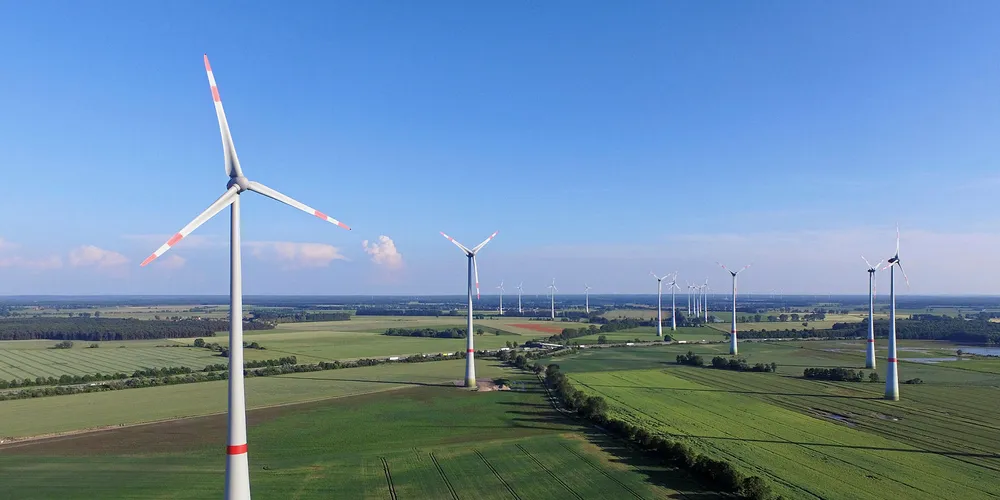Prices for winning bids in Germany’s 1GW third onshore wind auction fell to record lows and almost the entire acreage was won by community wind groups that have more time to complete their projects, worsening fears in the industry of a dangerous lull in installations in 2019 and 2020.
The average price of winning bids fell to €38.2/MWh ($44.89/MWh), down from €42.8/MWh at the last 1GW auction in August, and €57.1/MWh at a first 807MW round in May, the federal networks agency BNetzA said.
“The result confirms experiences from the previous auction that almost only bids from citizen energy cooperatives won,” says BNetzA president Jochen Hohmann.
“Those bidders now have four and a half years time to complete their projects and in our view have implied a positive further development of turbine technologies and falling prices in their bids.”
The lowest winning bid actually came in at €22/MWh, the agency said.
The auction was several times oversubscribed, with 210 bids for a volume of 2.59GW, which points to a ravenous appetite for the construction of new wind projects in Germany.
German wind power association BWE said the outcome was good news for politics and consumers, but warned that tendering rules favouring community power puts great pressure on the entire wind energy supply chain.
Community groups don’t need to provide a noise emission permit when bidding, and have four and a half years to build their projects (two years longer than common developers).
“There is a great danger that there will be an interruption of the wind energy expansion that will affect manufacturers, suppliers, logistics and planners equally hard and threatens to massively slow down the Energiewende,” said BWE president Hermann Albers.
Reacting to complaints from the sector after community groups won most of the volume in the first two auctioning rounds this year, Germany’s outgoing government had decided that the grassroots bidders in the first of four onshore auctions next year will also need to provide a sound emission permit.
But Berlin has not decided what to do after that, and Chancellor Angela Merkel currently only presides over a caretaker government after talks collapsed this weekend to form a new conservative-liberal-green coalition after inconclusive elections in September.
“The termination of exploratory coalition talks for a new federal government paralyses politics. The acknowledged and urgently necessary correction of the EEG 2017 [Renewable Energies Act] must nevertheless not be delayed,” Albers cautioned, calling for a general requirement for a noise emission permit also after the first auctions in 2018.
Germany plans to tender off 2.8GW in onshore volume in 20018 and 2019 each, and 2.9GW in the years after that.
The BWE also criticised that as a result of a reference yield model that favours strong wind locations, bids from inland southern Germany were unsuccessful in the auction, although more wind energy is needed in the power hungry region that concentrate a great part of the country’s industry and population.
(Copyright)